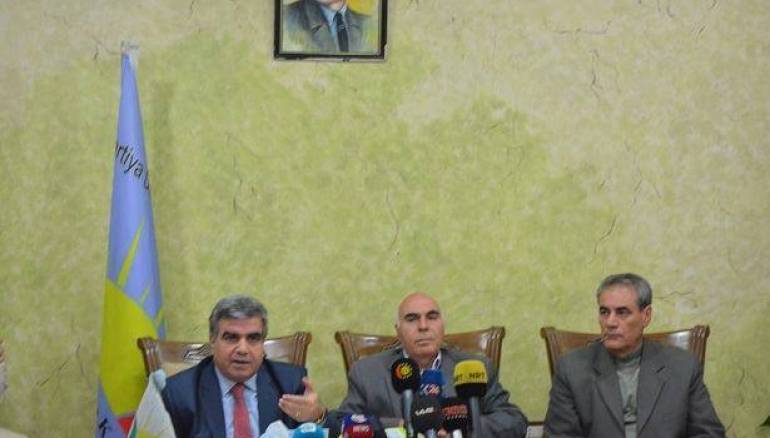Moscow’s invitation to 24 Syrian Kurdish parties to attend a meeting at Hmeimim airbase on the Syrian coast comes amid attempts to secure a Kurdish Democratic Union Party (PYD) seat within the opposition’s negotiation delegation.
Omar Kojari, editor of the Kurdistan Newspaper, clarified to Zaman al-Wasl that the “summoning” was not initiated by officials in Russia but from an army general stationed at the airbase. Otherwise, the meeting would have been held in the Russian foreign ministry in Moscow and not in the airbase at Lattakia, he said.
Kojari said: “the invitation was directed to many Kurdish parties. Some we have hardly heard of. They do not have any effect or role (and not many) members. In general, the parties which responded to the invitation are involved with the PYD. The parties of the Kurdish Local Council and the Progressive Democratic Party refused to attend.”
He added, “it is not a Russian invitation to Kurdish parties, but the Russian general wanted all those parties in one place to form a unified (delegation) to participate in the future negotiations of Syria representing the Kurdish group. But truth be said, the aim is very clear and that is to agree to the terms of Assad regime and what the regime wants.”
Kojari said that the parties which attended the meeting at Hmeimim presented a memorandum to the Russian general which included some unclear points and they formed a committee to participate in the international negotiations.
Political analyst and expert in Russian affairs, Dr. Mahmoud al-Hamza, told Zaman al-Wasl that the Russians have played the Kurdish card since the outbreak of the revolution, especially with regards to Saleh Muslim’s forces and his party, the PYD, who are close to the regime and have fought the opposition and the revolution.
He added that Russia wanted the opposition delegation to include its own ‘internal opposition’ backed by Moscow, like the opposition from the Cairo Conference and the Astana Conference.
Hamza noted that after the fall of Aleppo, Russia, in coordination with Turkey, feels it is able to impose a political solution. Another reason for the move is that Moscow does not trust allies of the regime, Iran and Hezbollah, and is in a rush to impose a political solution to secure its interests in Syria.
This article was edited by The Syrian Observer. Responsibility for the information and views set out in this article lies entirely with the author.


